Strengthening research, technological development and innovation
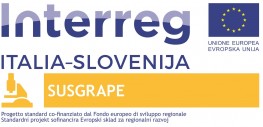
Promoting innovation capacities for a more competitive area
The project aimed at promoting the capacity for innovation and the acquisition of new technologies by companies and SMEs in the Italian-Slovenian cross-border area by developing synergies and cross-border networks among companies operating in the wine sector, SMEs operating in the ICT sector, Research Centres, and Universities, and by encouraging eco-innovation processes that will ensure the more efficient use of natural resources and a reduction of the use of chemical products in agriculture.
The project’s concept stemed from the need for the wineries participating in the project to make the transition towards more sustainable agricultural methods, as opposed to those currently in use, in order to fight the 2 diseases that usually affect the health of their crops and compromise the quality and quantity of their final products: downy mildew and powdery mildew. The PPs have acknowledged this need by establishing a stable cross-border cooperation network consisting of 17 companies, 2 research centres, and 1 university (subsequently expandable), which is committed to collaborating on the development of the business fabric and on scientific and applied research, with the common goal of researching innovative solutions to support the wine and agricultural sectors, with important repercussions for the entire program area. SUSGRAPE was therefore established in order to help companies operating in the wine sector adopt ICT vineyard management technologies, through experimentation with an agriculture Decision-Making Support System (DSS), as well as the relative technical training of the operators, implemented within 2 different agricultural areas near the Italian-Slovenian border. The DSS consists of an environmental monitoring system associated with the development of 2 agronomic forecasting models, which have been customised for the territories covered by the project and integrated within a special software application. The benefits of this system include a reduction in both CO2 emissions and the use of chemical substances in vineyard cultivation activities, as well as a reduction in water consumption for irrigation purposes, and an improvement in the health and quality of the final product.
SUSGRAPE also analysed the potential of applied microbiology in agriculture through the cross-border genetic analysis of the bacterial populations that characterise the grapevines, with the aim of obtaining the basis for the development of new biopesticides.
18 wineries of Italian Collio area, 1 winery from Slovenian Istria, 1 SME of ICT sector, 1 research centre in biotechnologies, 1 university, through the coordination of 1 research centre specialized in technology transfer, set up a network of cross-border cooperation which allowed:
12 training workshops were organized involving about 350 secondary school and university students:
The SUSGRAPE partnership brings together key players from the R&D programme area (2 research centres and a university), SMEs operating in the ICT sector and companies in the wine sector.
On the one hand, the University of Primorska and the ICGEB, under the coordination of Area Science Park and the collaboration of the wine companies, develop a research project that sees a joint use of laboratories as well as reciprocal temporary secondment of researchers. In addition, the "young" University of Primorska benefits both in terms of know-how and reputation from the collaboration with the ICGEB, an institution of international renown for research and training in genetic engineering and biotechnology.
On the other hand, the University of Primorska and Primo Principio, under the coordination of Area Science Park, develop agronomic forecasting models and transform them into software language within the WiForWine SUSGRAPE web platform, so as to facilitate consultation by the wineries which test forecasting models.
The Koper Chamber of Commerce and Area Science Park implement and coordinate all the communication activities, project promotion and dissemination of results.
The different skills provided by the partners are therefore complementary and consistently integrate each other for the pursuit of a common goal. Furthermore, the opportunity of cross-border cooperation amplifies the advantages deriving from the project with reference to the agronomic forecasting models customized for the territories being tested (Slovenian Istria and Collio Friulano). Such models are characterised by a very strong cross-border value because:
In conclusion, SUSGRAPE has established stable cross-border collaborations between research institutions, universities, digital SMEs and companies in the wine sector.
Lead Partner

Project partner 1
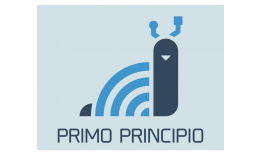
Project partner 2
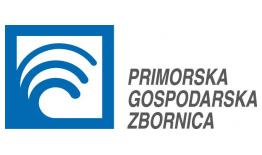
Project partner 3
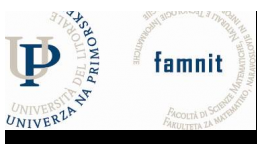
Project partner 4
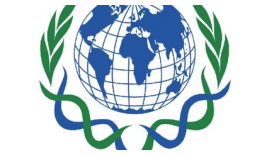
Project partner 5
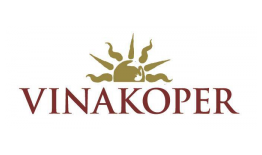
Project partner 6
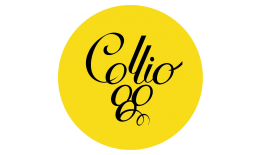
| Poster evento annuale 30/05/2018 SUSGRAPE_ITA_1.pdf ( 584 bytes, published on 7 June, 2018 - 12:47 ) | |
| Cartello informativo apposto sulle centraline di monitoraggio in vigna SUSGRAPE_cartello informativo_ITA-SLO.pdf ( 2 bytes, published on 18 December, 2019 - 10:17 ) |
MAIN PROJECT OBJECTIVES
The project made it possible to support 19 wineries of Italian Collio and Slovenian Istria areas, in the adoption of ICT technologies designed for vineyard management. They tested the WiForWine SUSGRAPE Decision Support System (DSS) in the fight against downy and powdery mildew fungal diseases, moving towards more environmentally sustainable methods of agricultural processing. An important first step was also taken in the field of microbiological research on the bacterial population living in vine leaves. The research project was aimed at contributing to the fight against downy and powdery mildew through biological contrast agents.
ACHIEVED RESULTS
Setting up of the DSS - WiForWine SUSGRAPE through:
Database creation about the "microbiome" present in the leaves of some grape varieties of the Italian Collio and Slovenian Istria areas, through the isolation and storage at - 80 ° C of 264 microorganisms. Characterization of these microorganisms and creation of a sub-collection of interesting strains for biocontrol. Tests in vitro and in planta led to the identification of "SUS 239", a microorganism with potentialities in contrasting the 2 pathologies, and which could represent a basis for further and more in-depth research.
IMPORTANCE OF CROSSBORDER PARTNERSHIP
The project brought together 19 wineries and 1 IT company with the aim of working together in contrasting the 2 most impacting diseases in vine cultivation: downy and powdery mildew. A university was in charge of the scientific consultancy, while a technology transfer center of the general coordination. Competences and laboratory equipment complementarity between University of Primorska and ICGEB permitted the implementation of microbiology research project.
FUTURE ACTIVITIES
The collaboration between the ICT company and the wineries follows beyond project end through private agreements. Scientific collaboration in microbiological research between University of Primorska and ICGEB also continues.